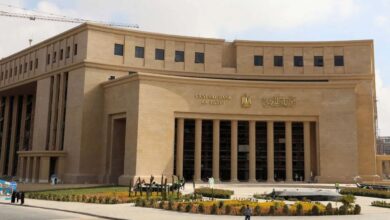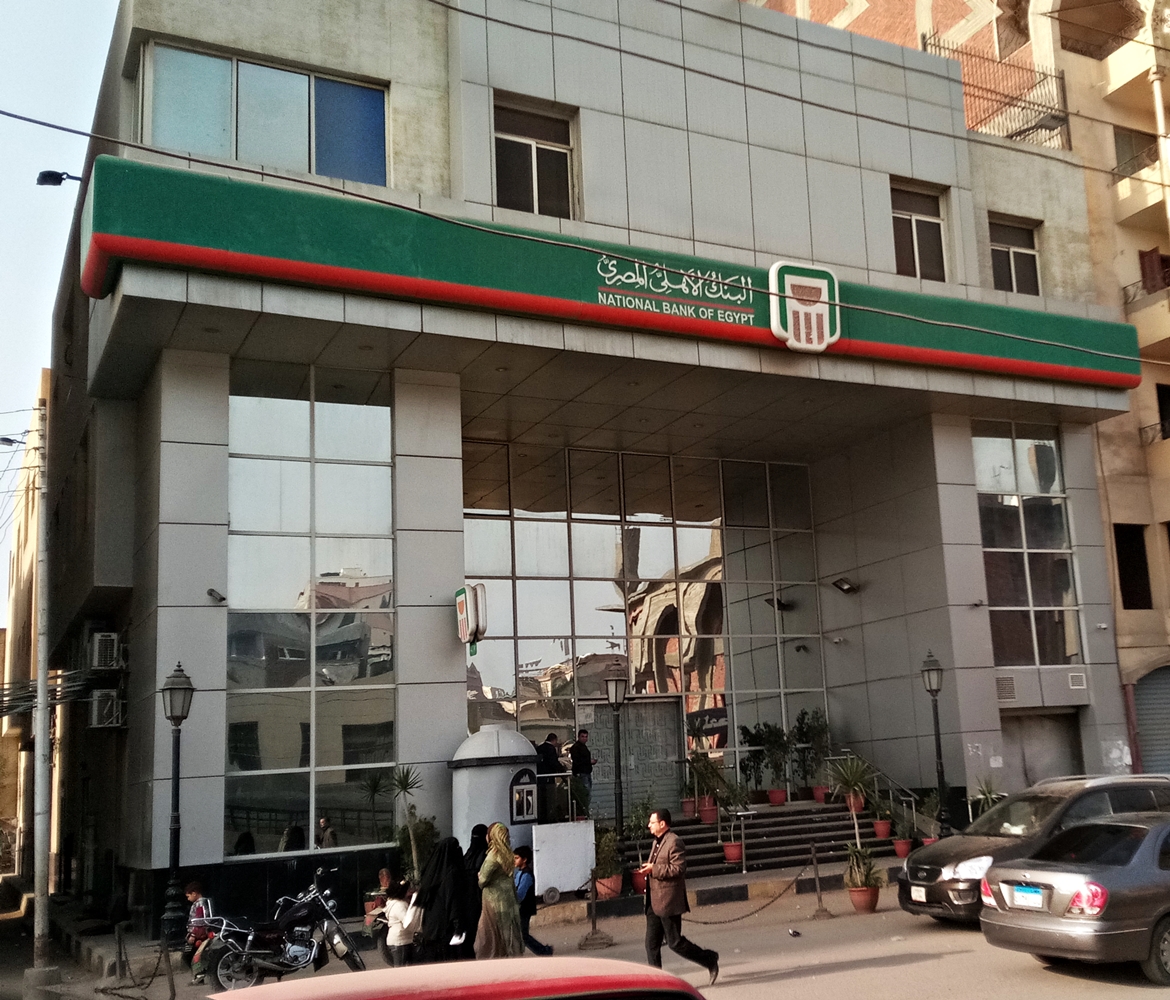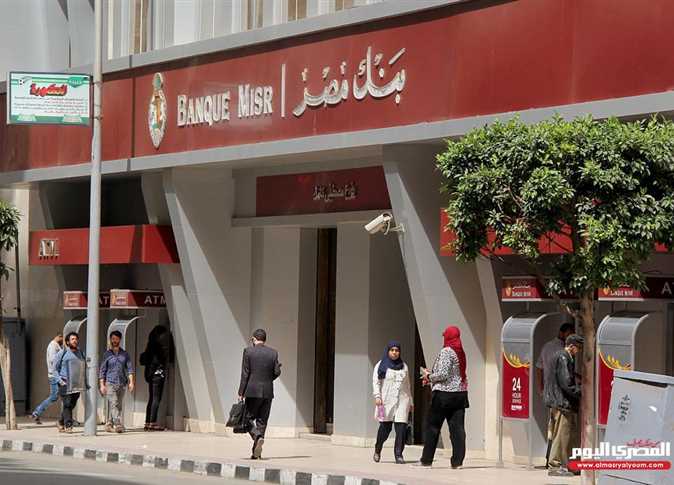As Egypt's banking sector struggles under the weight of a credit crunch, Arab banks are seeing the crisis as an opportunity to acquire and invest in some of the country's largest financial institutions.
With the completion of the recent National Bank of Dubai purchase of BNP Paribas Egypt, there are now six Emirati banks operating in the Egyptian banking sector, including the National Bank of Abu Dhabi, Abu Dhabi Islamic Bank, The National Bank for Development, Union National Bank, Mashreq Bank, and Emirates NBD.
Recently, NBD became the second foreign bank, after Qatar’s National Bank, to take over a large piece of the Egyptian banking sector.
NBD, the UAE's biggest bank in holding assets, will buy France's BNP Paribas operations in Egypt for US$500 million, or about 100 percent of the shares of BNP Paribas Egypt, the bank confirmed.
The move follows QNB's recent acquisition of National Société Générale Bank's (NSGB) Egyptian business for $2 billion last month — news that sent stocks from NSGB, a division of the French-based Société Générale Group, rallying by 55 percent from the end of August to mid-October.
The joint statement issued by NBD and BNP Paribas of France, said the deal includes shares of Paribas France bank in its Egypt unit. The deal is scheduled to be finalized by the end of the first quarter in 2013, after approval from the Central Bank of Egypt.
The transactions and acquisitions, though, have sparked debate about Gulf money's increasing control over Egypt's banking sector.
Some industry observers have predicted that the current economic situation threatens to further devalue the assets of the banking sector, putting it in greater jeopardy of a Gulf takeover.
But some experts say it's a combination of global factors that have led to the rise of Arab banks, not just in Egypt, but internationally.
Economist Salwa Antary, former head of research at National Bank of Egypt and president of economic committee of the Revolutionary Socialists, said that French banks are facing troubles at home because of the Euro crisis, which has led them to get out of several foreign markets.
“There are UAE banks in Egypt for some time now, and if they still want to increase that is a good thing, which means that they see the market as profitable,” Antary said. “It is an indication that the market is recovering and is still appealing to investors.”
But Antary worries that the new banks entering the market won't bring along capital, resources, technology or technical support along with them. In switching Emirati with French operators, she says Egypt will no longer be on the receiving end of French banking expertise.
“They will hardly introduce any new services to the market," she said. "They may be specialized private wealth management services, but not something that we need in the Egyptian market."
Banking expert Ahmed Adam agreed that the deal of NBD and BNP Paribas reflects the far-reaching effects of the European debt crisis.
He said the sale is indicative of the serious losses dogging France's banking sector.
"Even with all the troubles clouding the current financial environment, Egypt is a significant economy in the Middle East, with huge potential," he said. “At the same time, French banks are under pressure at home and looking to get rid of some of their assets abroad."
He said that Qatar has been trying to increase its Egypt portfolio in order to support the estimated $18 billion in investments it has said will be making in the country in the coming years.
Unlike other Arab Gulf countries, all of which have at least two banks in Egypt, Adam pointed out that NSGB is Qatar's first venture into Egyptian banking.
“It is easier for investors to deal with banks of the same nationality, it facilitates the paper work, loans, credits and all,” he said.
Room for growth
In addition, there are a number of reasons for Arab bankers to find Egypt's banking sector attractive.
The EGX30 indices have seen substantial gains in the banks in the past year. The banking sector came second among the highest profitable sectors on the Egypt stock market last year, as the banking index saw a rise of 8.2 percent by the end of the fiscal year, according to the annual Egypt Exchange report.
"The banking sector and financial institutions is still a promising market for investors," said Adam. "Egypt has huge population, and only 10 percent have bank accounts."
In general, the banking sector has started 2012 with fewer dents than most sectors, despite the credit crunch. They have maintained lower loans to deposits rate through practicing a cautious lending policy since the revolution.
And experts say the banking sector could really take off if the government manages to sustain a degree of political stability.
Mohamed al-Beltagy, chairman of the Egyptian Association for Islamic Finance, said that entrance of new banks to the Egyptian market is a positive sign that the sector is still attractive to investors.
“We can consider the latest two transactions as sort of evidence of the strength of the banking sector in Egypt," he said.
He said that the price tags of both BNP Paribas and NSGB were a great deal for Arab Gulf investors, but said that the French bankers had agreed to these prices.
However, Adam doesn’t expect a mass takeover of Egyptian banks.
He said it is much better for some banks to be sold to other investors, especially banks that are likely to face trouble in the near future, such as the National Bank of Greece, which is a branch of the Greek bank. It would be much worse if it went bankrupt, he said, in which case depositors would literally lose their money.
Adam believes that the banking sector needs to amend its laws and to raise the up-front capital of operating commercial banks from $500 million to $3 billion, which would inject hard currency into the market and help solve the shortage of foreign currency.
He said the market should also be open for Islamic banking giants from Malaysia and South East Asian countries, with their assets estimated to reach $1.5 trillion by the end of the year.
Desperate times
According to Central Bank data, there are 39 commercial banks operating in the local market. In 2004, the CBE adopted a plan to reform the banking sector in Egypt to comply with the second Basel Accords, which are recommendations on the international banking laws.
Following the reforms, the country's banking arena has seen a number of mergers and acquisitions, which have largely strengthened foreign banks operating in Egypt and decreased the total number of banks operating in the country.
Egypt Independent conducted a preliminary survey on the number of GCC banks operating in Egypt, and found that there are six UAE operated banks, two Kuwaiti, Bahraini, and Saudi Arabian, as well as one bank operated by Qatar, and one by Oman.
In addition, there are approximately 14 banks either completely or partially GCC-owned, making up roughly one-third of the banking sector in Egypt.
An official at BNP Paribas, who strictly insisted on remaining anonymous as the administration has issued an internal memo banning all staff to talk to the press, said that they are pleased that the bank was finally sold to another investor, due to the dire situation of the bank in the past two years.
The bank had difficulty operating under the conservative policies the bank has adopted since the revolution, he said, and the situation only worsened with the French banking sector's increasing troubles.
“We haven’t been receiving any bonuses, benefits or profits in the past two years, which we expect to change with the new owners," he said.
He believes that the acquisition price is lower than real value of the banks’ assets.
The $2 billion price tag, he said, is not a fair value for NSGB, which is a big operating bank in Egypt and controls about 7 percent of the market share, saying that the amount BNP sold for is highly discounted from the market value of the bank’s assets estimated two years ago.
However, he added, desperate times call for desperate measures.



